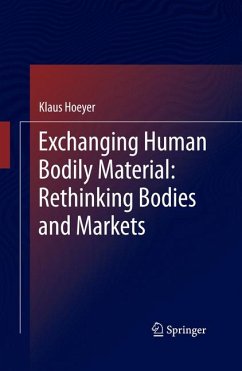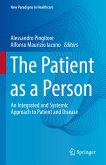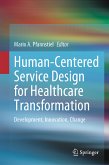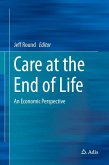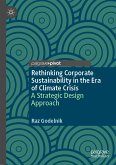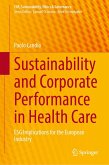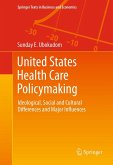Assumptions about markets and bodies that characterize this debate are analyzed and described while the author argues that these assumptions are in fact constitutive for exchanges of human bodily material - but in unacknowledged ways. It is concluded that what we need is a different analytical approach to better understand the mechanisms at play when organizations exchange organs, tissues and cells for use in transplantation and fertility medicine.
Assumptions about markets and bodies that characterize this debate are analyzed and described while the author argues that these assumptions are in fact constitutive for exchanges of human bodily material - but in unacknowledged ways. It is concluded that what we need is a different analytical approach to better understand the mechanisms at play when organizations exchange organs, tissues and cells for use in transplantation and fertility medicine.
Dieser Download kann aus rechtlichen Gründen nur mit Rechnungsadresse in A, B, BG, CY, CZ, D, DK, EW, E, FIN, F, GR, HR, H, IRL, I, LT, L, LR, M, NL, PL, P, R, S, SLO, SK ausgeliefert werden.
"The author aims the book primarily at the community of anthropological, sociological, and science, technology, and society (STS) scholars. The author hopes that philosophical ethicists, economists, and legal scholars also will find it useful for engaging in the discussion of the exchange of human bodily materials from new angles. ... The author's careful deconstructive work is insightful and well researched. The book is likely to have broad interdisciplinary appeal, especially considering the rising appeal of biopolitics in a number of fields." (Devan Stahl, Doody's Book Reviews, July, 2013)

